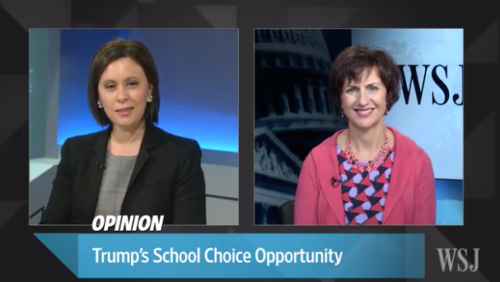October 4, 2016
Common Ground podcast
Jeanne Allen, Founder and CEO of the Center for Education Reform, sits down with William L Walton, Host of Common Ground with Bill Walton, to talk about the status of education reform and the charter school movement.
In the 1990s, school choice options grew and charter schools saw some real success as they were freed of school board oversight and restrictions. Today, they are facing regulations which are not much different than the kind imposed on traditional schools and are exactly the kind of regulations that impede progress.
The full podcast below:













